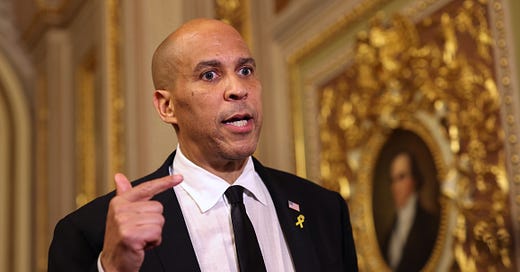It's the Supply Shock, Stupid
If you want to blunt the economic effects of coronavirus, remove trade barriers now.
Washington has finally begun taking emergency action over the coronavirus pandemic. Unemployment insurance, food stamps, and other safety net programs are being expanded. European travelers are being turned away. The Federal Reserve is pumping liquidity. And there are plans for all sorts of bailouts and stimulus packages.
But so far there is no legislation—there is not even any talk—of one of the easiest and most helpful actions to address the economic (and health!) effects of the outbreak: removing trade barriers.
As several commentators have noted, many of the adverse economic effects of coronavirus will result from a supply shock.
Worker illness will reduce labor while quarantines and transport disruptions will isolate supply centers, constraining the flow of raw materials and intermediate and finished goods. At the same time, the sick and people trying to avoid illness will increase their demand for health care and some other goods—resulting in many of the same economic effects as a supply shock.
The result will be higher prices and large, unmet demand.
Supply shocks differ in important ways from negative demand shocks, where consumers cut their spending even as prices fall. Policymakers respond to demand shocks with deficit-financed government spending and subsidies to consumers in an effort to boost consumption and the economy.
In a supply shock, however, such policies make matters worse, because they increase demand as supply falls. Though there are good arguments for aiding people harmed by the virus and backstopping otherwise-viable firms in sectors hurt as Americans practice “social distancing,” broad attempts to boost aggregate demand would be counterproductive—not to mention deadly in an America that is trying to slow the spread of a sometimes-deadly disease.
It’s said that Bill Clinton’s 1992 campaign staff used a big sign that read “The economy, stupid” to keep their candidate on-message. Today’s policymakers need to be constantly reminded of “The supply shock, stupid.”
Fortunately, we can boost supply quickly by removing the many unreasonable obstacles government has put in its way. For starters, we can open America’s borders to all foreign-made goods—now.
Though global production is hobbled by coronavirus, it still has enormous capacity. America consumers can receive a large share of that output.
We have U.S. dollars, and the world wants them. We can easily win the bidding wars for a bounty of food, medicine and other health care goods—or any other goods we want, really. We need only allow those products to flow into our ports and stores and homes unconstrained by tariffs and other trade barriers.
Of course, in the last few years the Trump administration has erected large barriers to trade. Whatever you think about not-so-easy-to-win trade wars in a time of peace and stability, in the midst of a pandemic, these barriers make no sense. At all.
Congress has the power to alter U.S. trade policy through legislation, and lawmakers have shown the ability to legislate quickly. The president has claimed broad unilateral power over trade and has flexed that power recently. Both branches of government should be using that power to ease the impending supply shock.










